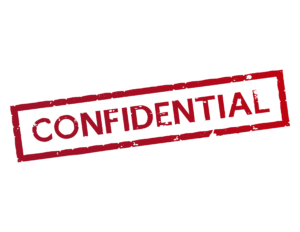August 1 Speech: Viola Amherd speaks no matter what.
On July 31, 2023, Europaplatz in Lucerne became a special place. Federal Councillor Viola Amherd appeared before the audience and left a lasting impression.
In her concise ten-minute speech, Viola Amherd emphasized Swiss values and the sense of community. Despite the serious content, there were also light-hearted moments. The core message: Switzerland is solid as a rock.
Amherd made use of tried and tested rhetorical devices, among others
a) Humor
A little humor never hurts and makes you likeable. Despite two cancellations due to Corona and a broken elbow, Viola Amherd came to give her speech. After all, the organizers were just as persistent – they invited her three times.
b) Perseverance
A broken elbow would have kept many from giving a speech. But not Viola Amherd.
c) Amherd’s humorous, spontaneous replica
The gift from Andrea Gmür, member of the Council of States, was remarkable. She presented the Federal Councillor with two bottles of wine – one non-alcoholic and one with alcohol. Quick-wittedly, Amherd replied: “Just to clarify: my accident was before we had drinks”.
d) Memorable analogies
Amherd stressed that security and independence are deeply rooted in the Swiss DNA.
For Amherd, the Swiss Constitution of 1848 is the blueprint of our country.
In the “ground station” Switzerland, natives and immigrants live together peacefully.
She stressed the need for the European protective umbrella.
e) reference to a local person
A special moment was the mention of Emil Steinberger, a local personality from Lucerne.
What could she have done better or differently, in the view of presentation trainer Thomas Skipwith?
a) Punctual start
The 40-minute delay should be avoided in the future.
b) Memorable end
“Thank you very much for your attention. is an run-of-the-mill closing. Recommendation: An appeal, e.g. with the words: “To democracy, continuity and peace. “To our Constitution of 1848. To the birthday of Switzerland”.
c) Dialect
She spoke in easily understandable High German. As a Valaisan, a short interjection in the Valaisan dialect would certainly have gone down well.
Recommendations to the organizers
The audience from the 2nd row on could hardly see Mrs. Amherd. An elevation or platform for the speaker would be recommended.
Conclusion
It was worth the trip to Lucerne to hear Mrs. Amherd’s keynote speech. Also as an example of what you can do right in a keynote speech.
To attractive speeches!
Your
Thomas Skipwith
P.S.: Last minute checklist for your speeches: In this blog post.
Book recommendation
In the following book, you will find the tools, systems, and tips that will make you a persuasive speaker. So that you need less time for preparation and present with more confidence.
If you want support for a speech or presentation, please let me know (+41 41 630 39 90).
If you would like to have tips and tricks regularly by e-mail (in German), then sign up to the Trainingletter – but it’s confidential:-).




 Soon the time will come again: all over Switzerland countless speakers will give a speech because of the 1st of August. The 1st of August is the Swiss national holiday. Hence there is the tradition of giving a 1st of August speech. I feel this is a worthwhile tradition, because giving a speech is always an opportunity to share a message. When else can you share your thoughts (more or less) undisturbed with a larger crowd?!
Soon the time will come again: all over Switzerland countless speakers will give a speech because of the 1st of August. The 1st of August is the Swiss national holiday. Hence there is the tradition of giving a 1st of August speech. I feel this is a worthwhile tradition, because giving a speech is always an opportunity to share a message. When else can you share your thoughts (more or less) undisturbed with a larger crowd?!